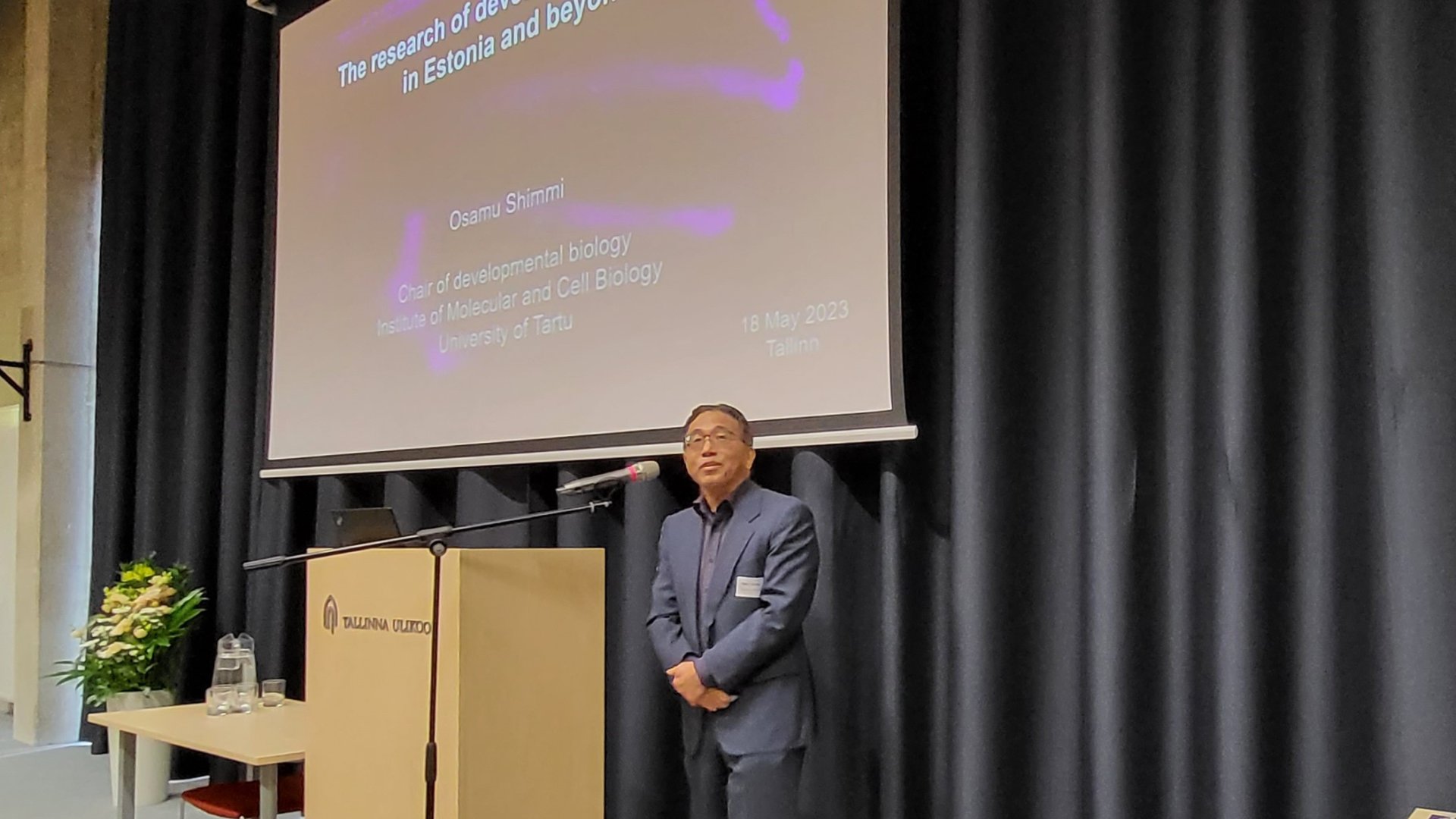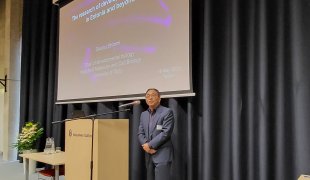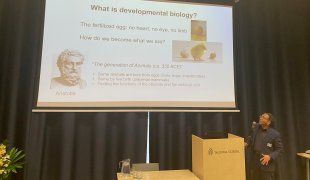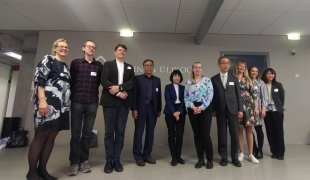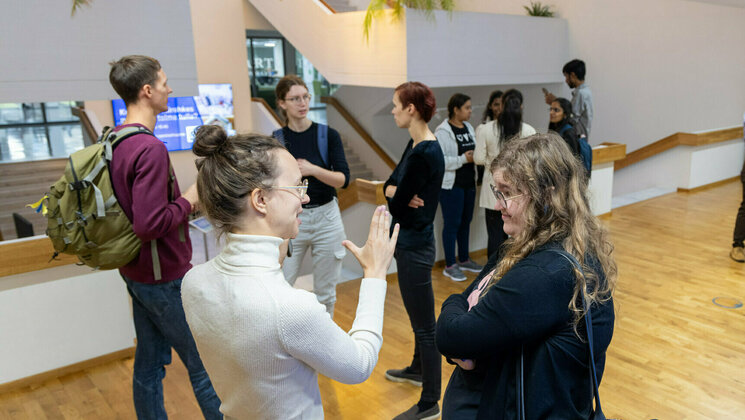-
Faculty of Arts and HumanitiesDean's Office, Faculty of Arts and HumanitiesJakobi 2, r 116-121 51005 Tartu linn, Tartu linn, Tartumaa EST0Institute of History and ArchaeologyJakobi 2 51005 Tartu linn, Tartu linn, Tartumaa EST0Institute of Estonian and General LinguisticsJakobi 2, IV korrus 51005 Tartu linn, Tartu linn, Tartumaa EST0Institute of Philosophy and SemioticsJakobi 2, III korrus, ruumid 302-337 51005 Tartu linn, Tartu linn, Tartumaa EST0Institute of Cultural ResearchÜlikooli 16 51003 Tartu linn, Tartu linn, Tartumaa EST0Institute of Foreign Languages and CulturesLossi 3 51003 Tartu linn, Tartu linn, Tartumaa EST0School of Theology and Religious StudiesÜlikooli 18 50090 Tartu linn, Tartu linn, Tartumaa EST0Viljandi Culture AcademyPosti 1 71004 Viljandi linn, Viljandimaa EST0Professors emeriti, Faculty of Arts and Humanities0Associate Professors emeriti, Faculty of Arts and Humanities0Faculty of Social SciencesDean's Office, Faculty of Social SciencesLossi 36 51003 Tartu linn, Tartu linn, Tartumaa EST0Institute of EducationJakobi 5 51005 Tartu linn, Tartu linn, Tartumaa EST0Johan Skytte Institute of Political StudiesLossi 36, ruum 301 51003 Tartu linn, Tartu linn, Tartumaa EST0School of Economics and Business AdministrationNarva mnt 18 51009 Tartu linn, Tartu linn, Tartumaa EST0Institute of PsychologyNäituse 2 50409 Tartu linn, Tartu linn, Tartumaa EST0School of LawNäituse 20 - 324 50409 Tartu linn, Tartu linn, Tartumaa EST0Institute of Social StudiesLossi 36 51003 Tartu linn, Tartu linn, Tartumaa EST0Narva CollegeRaekoja plats 2 20307 Narva linn, Ida-Virumaa EST0Pärnu CollegeRingi 35 80012 Pärnu linn, Pärnu linn, Pärnumaa EST0Professors emeriti, Faculty of Social Sciences0Associate Professors emeriti, Faculty of Social Sciences0Faculty of MedicineDean's Office, Faculty of MedicineRavila 19 50411 Tartu linn, Tartu linn, Tartumaa ESTInstitute of Biomedicine and Translational MedicineBiomeedikum, Ravila 19 50411 Tartu linn, Tartu linn, Tartumaa ESTInstitute of PharmacyNooruse 1 50411 Tartu linn, Tartu linn, Tartumaa ESTInstitute of DentistryL. Puusepa 1a 50406 Tartu linn, Tartu linn, Tartumaa ESTInstitute of Clinical MedicineL. Puusepa 8 50406 Tartu linn, Tartu linn, Tartumaa ESTInstitute of Family Medicine and Public HealthRavila 19 50411 Tartu linn, Tartu linn, Tartumaa ESTInstitute of Sport Sciences and PhysiotherapyUjula 4 51008 Tartu linn, Tartu linn, Tartumaa ESTProfessors emeriti, Faculty of Medicine0Associate Professors emeriti, Faculty of Medicine0Faculty of Science and TechnologyDean's Office, Faculty of Science and TechnologyVanemuise 46 - 208 51003 Tartu linn, Tartu linn, Tartumaa ESTInstitute of Computer ScienceNarva mnt 18 51009 Tartu linn, Tartu linn, Tartumaa ESTInstitute of GenomicsRiia 23b/2 51010 Tartu linn, Tartu linn, Tartumaa ESTEstonian Marine Institute0Institute of PhysicsInstitute of ChemistryRavila 14a 50411 Tartu linn, Tartu linn, Tartumaa EST0Institute of Mathematics and StatisticsNarva mnt 18 51009 Tartu linn, Tartu linn, Tartumaa EST0Institute of Molecular and Cell BiologyRiia 23, 23b - 134 51010 Tartu linn, Tartu linn, Tartumaa ESTTartu ObservatoryObservatooriumi 1 61602 Tõravere alevik, Nõo vald, Tartumaa EST0Institute of TechnologyNooruse 1 50411 Tartu linn, Tartu linn, Tartumaa ESTInstitute of Ecology and Earth SciencesJ. Liivi tn 2 50409 Tartu linn, Tartu linn, Tartumaa ESTProfessors emeriti, Faculty of Science and Technology0Associate Professors emeriti, Faculty of Science and Technology0Institute of BioengineeringArea of Academic SecretaryHuman Resources OfficeUppsala 6, Lossi 36 51003 Tartu linn, Tartu linn, Tartumaa EST0Area of Head of FinanceFinance Office0Area of Director of AdministrationInformation Technology Office0Administrative OfficeÜlikooli 17 (III korrus) 51005 Tartu linn, Tartu linn, Tartumaa EST0Estates Office0Marketing and Communication OfficeÜlikooli 18, ruumid 102, 104, 209, 210 50090 Tartu linn, Tartu linn, Tartumaa EST0Area of Vice Rector for DevelopmentCentre for Entrepreneurship and InnovationNarva mnt 18 51009 Tartu linn, Tartu linn, Tartumaa EST0University of Tartu Natural History Museum and Botanical GardenVanemuise 46 51003 Tartu linn, Tartu linn, Tartumaa EST0International Cooperation and Protocol Office0University of Tartu MuseumLossi 25 51003 Tartu linn, Tartu linn, Tartumaa EST0Area of RectorRector's Strategy OfficeInternal Audit OfficeArea of Vice Rector for Academic AffairsOffice of Academic AffairsUniversity of Tartu Youth AcademyUppsala 10 51003 Tartu linn, Tartu linn, Tartumaa EST0Student Union OfficeÜlikooli 18b 51005 Tartu linn, Tartu linn, Tartumaa EST0Centre for Learning and TeachingArea of Vice Rector for ResearchUniversity of Tartu LibraryW. Struve 1 50091 Tartu linn, Tartu linn, Tartumaa EST0Grant Office
Prof. Osamu Shimmi held a presentation at the joint seminar on the 20th anniversary of Estonian-Japanese academic cooperation

On May 18th, a joint seminar was held in cooperation with the Estonian Research Council (ETAG), the Japan Society for the Promotion of Science (JSPS) Stockholm Office, and the Embassy of Japan to celebrate the 20th anniversary of academic cooperation.
The JSPS fellowship program for postdoctoral researchers to conduct research in Japan has been ongoing for 20 years, and this long-standing collaboration has been strong and successful. Estonian scientists from natural and technical sciences, as well as social and humanities sciences, have shown great interest in the fellowship. Over the years, 17 Estonian candidates from various fields have conducted research at 13 Japanese universities through the JSPS program. In addition to Tokyo, JSPS has 11 offices worldwide.
At the seminar held at Tallinn University, Prof. Osamu Shimmi, a developmental biology professor from the University of Tartu, gave an overview of developmental biology research in Estonia and elsewhere, introducing the contributions of Baltic German scientists (Heinz Christian Pander, Henrich Rathke, and Karl Ernst von Baer). These scientists who once worked at the University of Tartu contributed significantly to the field of developmental biology.
The joint seminar was opened by the director of the Estonian Research Council, Prof. Anu Noorma, and the Ambassador of Japan to Estonia, H.E Mr. Yukihiko Matsumura, who emphasized the importance of Estonian-Japanese scientific cooperation and the need to continue its development.
Prof. Kazuyuki Kuroda, the director of the JSPS Stockholm Office, presented the activities of JSPS and the opportunities for applying for postdoctoral fellowships. JSPS encouraged Estonian researchers present at the seminar to apply for various fellowships to promote collaboration. Katrin Saar, a consultant from the Estonian Research Council, provided an overview of the fellowship conditions and application procedures.
Prospective applicants had the opportunity to listen to inspiring and diverse research experiences in Japan from previous fellowship recipients, Prof. Jaak Aaviksoo, Prof. Erkki Karo (TTÜ), and Uku Tooming (UT). According to the grant recipients, the JSPS fellowship program is a valuable program for young researchers' career paths, as it has advanced their research, created new opportunities for scientific collaboration, and provided opportunities for personal development.
As a guest from Japan, Prof. Hiromi Komori from Waseda University (Tokyo) presented her research on Estonian history.
A new call is opened in September-October 2023. Each year, the Estonian Research Council can nominate one scientist for the JSPS postdoctoral fellowship. Researchers from the fields of humanities, social sciences, and natural sciences are welcome to apply. The duration of the fellowship is 12 to 24 months. For more detailed information about the JSPS postdoctoral fellowship, please visit their website.
Currently, the JSPS postdoctoral fellowship only provides funding for visits of Estonian researchers to conduct research in Japan, but in the future, efforts will be made to create better opportunities for joint research with Japan.
All seminar presentations can be found on the Estonian Research Council's website.
This article is based on a news article published on the Estonian Research Council's website.
Photo gallery of Osamu Shimmi's presentation:
Read more similar news



